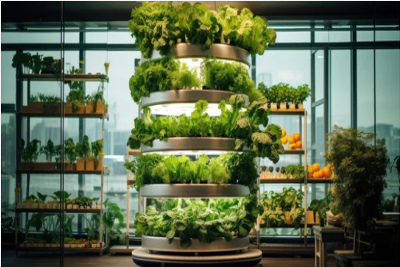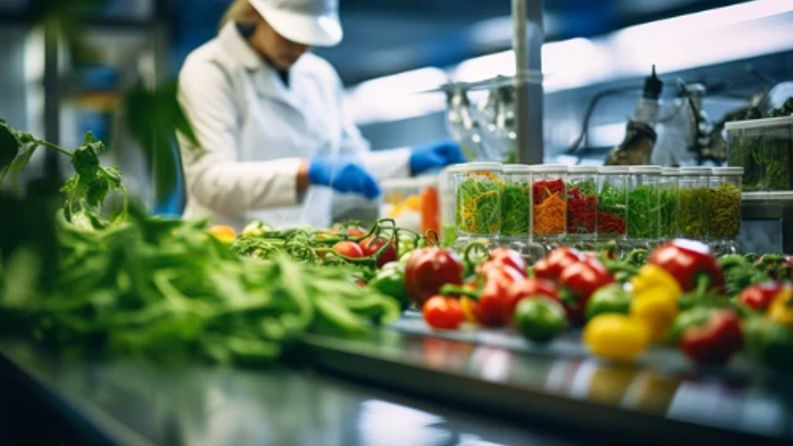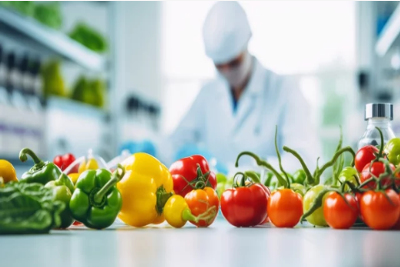
Halal Considerations for Lab-Grown Fruits and Vegetables
In the ever-evolving landscape of food technology, the intersection of science and culture becomes increasingly vital. Halal considerations for lab-grown fruits and vegetables represent a fascinating convergence of modern innovation and age-old traditions. As the global demand for ethically sourced and Halal-certified food rises, the exploration of how emerging agricultural methods align with Halal dietary principles takes center stage. This exploration delves into not only the scientific intricacies of lab-grown produce but also the cultural significance of ensuring adherence to Halal dietary laws.
Digging into History: When and How Halal Lab-Grown Farming Started
The concept of lab-grown food has deep roots, tracing back to the early 20th century. It gained momentum in later decades, driven by researchers exploring tissue culture techniques to revolutionize agriculture. By combining scientific expertise with Halal principles, methods were developed to ensure adherence to Halal dietary laws. Through biotechnological innovations like tissue culture and hydroponics, fruits and vegetables thrive in controlled environments, offering consumers an ethical and sustainable choice. Starting with sourcing Halal cells, the process involves meticulous cultivation, growth, and packaging, all meticulously monitored to maintain Halal compliance.
Understanding the Halal Certification Process for Lab-Grown Vegetables and Fruits
Halal Certification for Halal Lab-Grown Produce
Halal certification is a crucial aspect of Halal lab-grown produce. As it serves as a guarantee for consumers that the food has been produced in accordance with Halal dietary laws. The certification process involves a thorough examination of the entire production chain, from cell sourcing to the final product.

Ensuring Purity and Safety in Lab-Grown Halal Products
Purity and safety are paramount when it comes to Halal lab-grown products. To ensure the purity of the food, stringent quality control measures are implemented throughout the production process. This includes monitoring the growth medium, preventing cross-contamination, and maintaining a sterile environment. Safety is also prioritized through rigorous testing for contaminants and potential allergens. By adhering to these measures, Halal lab-grown products can meet the highest standards of purity and safety.
Consumer Trust and Transparency in Halal Lab-Grown Foods
Transparency and consumer trust are essential for the success of any food product, including Halal lab-grown foods. Consumers need to have confidence in the authenticity and Halal compliance of the food they consume. This can be achieved through clear labeling and comprehensive information about the production process. Halal certifying bodies play a crucial role in building consumer trust by providing independent verification and certification. By prioritizing transparency, the Halal lab-grown food industry can foster a strong relationship with consumers based on trust and integrity.
Halal Consumer Preferences and Lab-Grown Options
Consumer preferences play a significant role in shaping the market dynamics of Halal lab-grown fruits and vegetables. Halal consumers are increasingly seeking Halal food options that align with their ethical and religious beliefs. Lab-grown produce offers a promising solution by providing a Halal alternative to conventionally grown food. As awareness and demand for Halal lab-grown products continue to grow, the market is expected to expand, creating new opportunities for producers and suppliers.
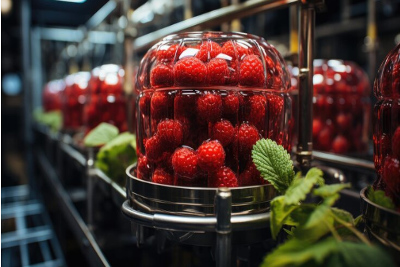
Are Halal Lab-Grown Foods as Healthy as Regular Ones?
Halal lab-grown foods can be as healthy as regular ones, when they're cultivated in controlled conditions without pesticides or genetic modification or any harmful chemicals. They can offer similar nutritional profiles to conventionally grown produce. Moreover, the absence of non-Halal elements like pork-derived fertilizers or alcohol-based sprays can enhance their healthiness. This ensures a purer and more ethical product, appealing to consumer’s choice of both their dietary needs and environmental sustainability.
Challenges and Benefits: What It Takes to Grow Halal Food in a Lab
Growing Halal food in a lab presents both challenges and benefits.
Challenges:
- Adherence to Halal Standards: Ensuring all aspects of production comply with Halal dietary laws.
- Cost of Technology: Initial investment in lab equipment and technology can be high.
- Sourcing of Halal cells: Sourcing Halal-certified cells or plant materials for the lab-grown process, which may be limited in availability or require specialized suppliers.
Benefits:
- Ethical Sourcing: Meeting the dietary needs of Halal consumers while upholding religious principles.
- Environmental Sustainability: Reduced use of pesticides and water, as well as decreased carbon footprint compared to traditional farming.
- Consistent Quality: Controlled environments enable precise control over growing conditions, leading to consistent and high-quality produce.
Green Growth: Why Halal Lab-Grown Food Might Be Better for the Environment
Halal lab-grown food presents a promising avenue for sustainable agriculture, offering several environmental benefits.
Reduced Land Use: Lab-grown food requires significantly less land compared to traditional farming, minimizing deforestation and habitat destruction.
Lower Water Consumption: The controlled environment of lab-grown facilities allows for precise water management, resulting in reduced water usage compared to conventional agriculture.
Decreased Chemical Dependency: By eliminating the need for pesticides and fertilizers, lab-grown food production reduces chemical runoff and pollution of soil and waterways.
Mitigated Greenhouse Gas Emissions: Lab-grown food production emits fewer greenhouse gases compared to traditional farming methods, contributing to climate change mitigation efforts.
Preservation of Biodiversity: With minimized habitat destruction and reduced chemical usage, lab-grown food helps protect biodiversity and ecosystems.
In essence, embracing Halal lab-grown food not only aligns with ethical and religious principles but also fosters a greener, more sustainable future for food production and environmental stewardship.
Strategies for Promoting Awareness of Halal Lab-Grown Options
- Collaborate with influential Halal certification organizations to certify and endorse lab-grown products.
- Engage in targeted social media campaigns highlighting the Halal credentials of lab-grown options.
- Host educational webinars or seminars to inform consumers about the Halal aspects of lab-grown products.
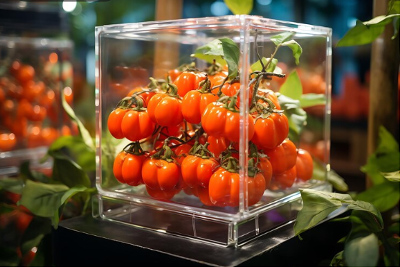
- Partner with Halal food blogs or influencers to create content promoting the benefits of choosing Halal lab-grown alternatives.
- Participate in Halal food expos or events to showcase and demonstrate the viability of lab-grown options.
- Establish partnerships with Halal restaurants or food service providers to offer lab-grown options on their menus.
- Distribute informative pamphlets or brochures in Halal markets or community centers explaining the ethical and religious considerations of lab-grown alternatives.
- Conduct taste tests and product samplings in mosques or Halal community gatherings to familiarize consumers with the quality and taste of Halal lab-grown products.
Technological Advancements Shaping the Future of Halal Lab-Grown Industry
Technological advancements are reshaping the future of the Halal lab-grown agriculture industry. Breakthroughs in biotechnology, nano-fertilizers, and automation are revolutionizing production processes, improving efficiency, quality control, and traceability. These innovations ensure adherence to Halal standards from cultivation to distribution, promising a future of more sustainable, efficient, and ethically produced food options for Halal community globally.
Halal lab-grown fruits and vegetables offer a unique and promising approach to meeting the dietary requirements of the Halal community. With a focus on Halal compliance, health implications, safety concerns, certification processes, and future trends, the industry is poised for growth and innovation. By embracing the potential of lab-grown food, we can ensure a sustainable, Halal-compliant, and environmentally friendly future.
Islamic Services of America (ISA) is a leading USA based Halal certification and auditing organization serving companies, the community, and the Halal certification industry for nearly 50 years. Contact ISA at isa@isahalal.com or send your initial inquiry to Halal certify your products at https://isahalal.com/contact or visit the ISA website for more information at https://isahalal.com/
